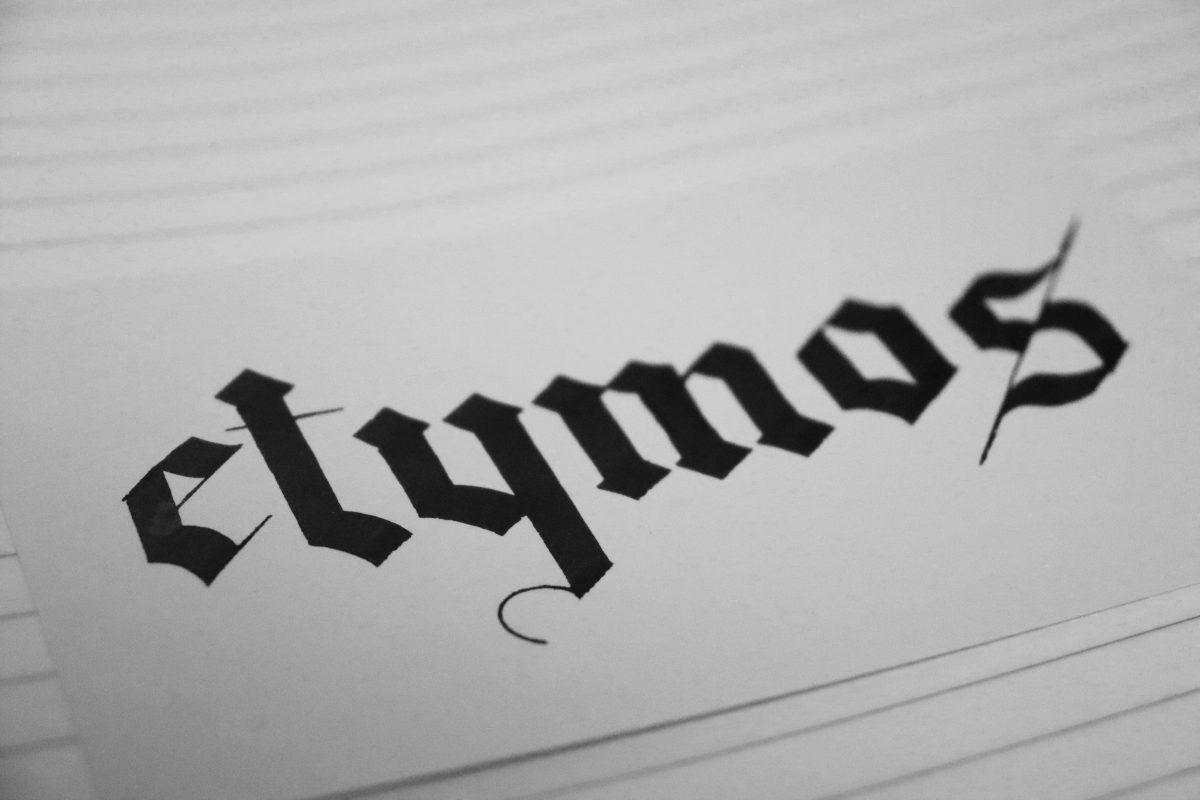Continuing my series of posts about different etymological families of words, let’s look at the words that end with ‘-cide’.
Once again, these words may be of particular use to fantasy and science fiction authors, like me, as rather a lot of murder happens in these genres. Words like ‘regicide’ – the killing of a king – ‘deicide’ – the killing of a god – or ‘tyrannicide’ – the killing of a tyrant – are obviously useful.
The full list of words that end with ‘-cide’ is quite long, and many of them are technical or scientific, so I won’t cover all of them here – I’ll just look at the ones that might be called poetically interesting.
| Word | Origin | Meaning |
| suicide | from Latin sui, ‘of oneself’, and cidium, ‘a killing’, ultimately from caedere, ‘to slay’ | the killing of oneself |
| homicide | from Latin homo, ‘man’, ‘person’ | the killing of another person |
| feminicide | from Latin femina, ‘woman’ | the killing of a woman; ‘femicide’ is also used, but this seems to be a needless contraction |
| uxoricide | from Latin uxor, ‘wife’ | the killing of one’s wife |
| patricide | from Latin pater, ‘father’ | the killing of one’s father |
| matricide | from Latin mater, ‘mother’ | the killing of one’s mother |
| fratricide | from Latin frater, ‘brother’ | the killing of one’s brother |
| sororicide | from Latin soror, ‘sister’ | the killing of one’s sister |
| senicide | from Latin senex, ‘old man’ | the killing of an old man |
| regicide | from Latin rex, ‘king’ | the killing of a king |
| tyrannicide | from Greek tyrannos, ‘lord’, ‘master’ | the killing of a tyrant |
| vaticide | from Latin vates, ‘prophet’, ‘seer’, ‘diviner’ | the killing of a prophet or seer – potentially a very useful word for fiction |
| deicide | from Latin deus, ‘god’ | the killing of a god |
| genocide | from Greek genos, ‘race’, ‘kind’ | a fairly modern word, less than 100 years old, meaning ‘the killing of an ethnic group’; this word is used incorrectly more than it is used correctly |
| feticide | from Latin fetus, ‘fetus’ | the killing of an unborn child |
| filicide | from Latin filius, ‘son’, filia, ‘daughter’ | the killing of one’s son or daughter |
| prolicide | from Latin proles, ‘offspring’ | the killing of one’s children |
| floricide | from Latin flos, ‘flower’ | the killing of flowers |
| felicide | from Latin feles, ‘cat’ | the killing of a cat – a grave crime |
| vulpicide | from Latin vulpes, ‘fox’ | the killing of a fox |
| ceticide | from Latin cetus, ‘whale’, ‘sea monster’ | the killing of a whale, the killing of a sea monster – possibly a very useful word |
| avicide | from Latin avis, ‘bird’ | the killing of a bird |
| libricide | from Latin liber, ‘book’ | the killing of books |
| verbicide | from Latin verbum, ‘word’ | the killing of a word, usually by perversion of its original or proper meaning |
| linguicide | from Latin lingua, ‘language’ | the killing of a language |
| temporicide | from Latin tempus, ‘time’ | the killing of time – potentially a very fun word to use |
| liberticide | from Latin libertas, ‘freedom’ | the killing of freedom, liberty |
| legicide | from Latin lex, ‘law’ | the killing of laws |
